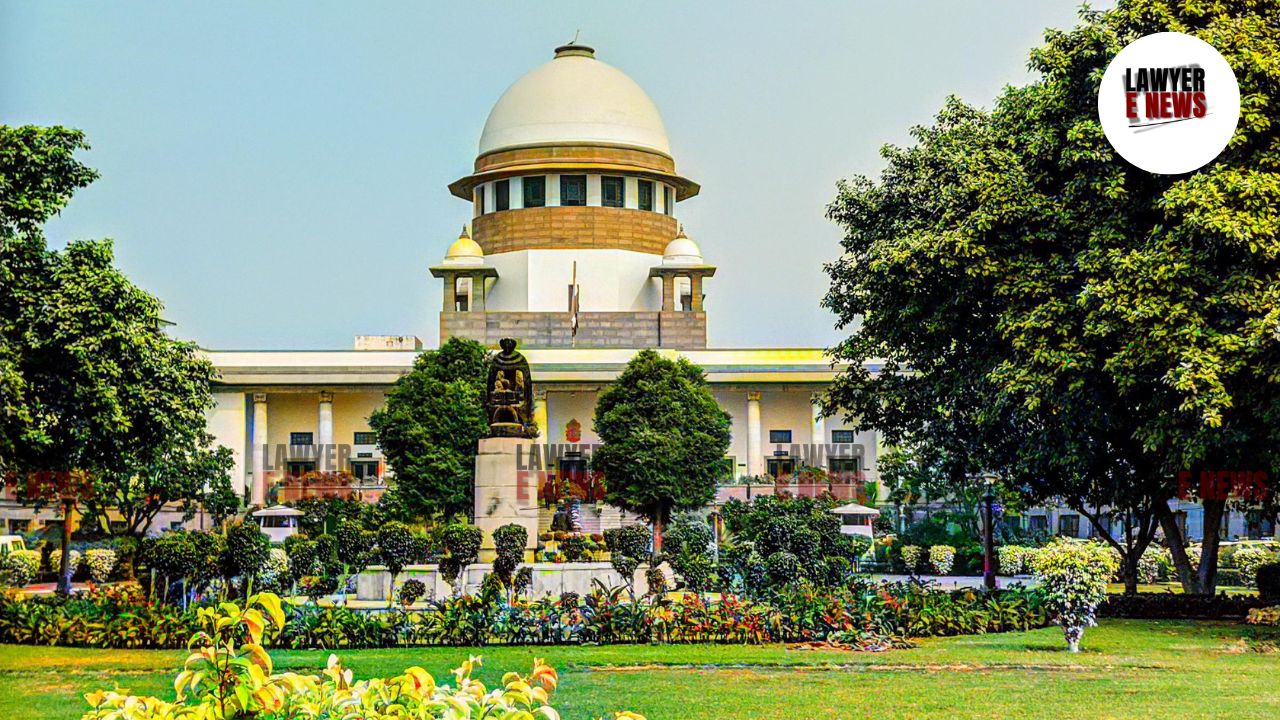-
by Admin
16 February 2026 1:47 PM



“No Prima Facie Case Under PC Act Without Proof of Personal Gain”, - Supreme Court of India partly allowed an appeal challenging the framing of corruption charges against a Goa PWD Executive Engineer, ruling that no offence under the Prevention of Corruption Act, 1988 was made out in absence of any allegation of pecuniary gain or gratification.
While the Court held that prima facie charges under Sections 409 (criminal breach of trust) and 468 (forgery for purpose of cheating) IPC could proceed based on CFSL handwriting analysis and documentary evidence, it found no legal basis to frame charges under Section 13(1)(d) read with Section 13(2) of the PC Act. The bench of Justice Abhay S. Oka and Justice Augustine George Masih held:
“There is no allegation that the appellant obtained for himself or for any other person any valuable thing or pecuniary advantage. Therefore, clause (d) of Section 13(1) of the PC Act is not attracted.”
The case stems from a 2013 vigilance complaint alleging procedural violations in 847 public water supply works sanctioned through 19 short tender notices in North Goa during a period of acute water scarcity. The appellant, K.H. Kamaladini, then Executive Engineer, was accused of manipulating tender documents to avoid newspaper publication, allegedly to favor select contractors and bypass competitive bidding.
According to the Vigilance Department’s enquiry report dated 26.03.2013, the appellant had: “Inserted in his own handwriting, the line ‘approved to take short tender without publishing in newspaper and issue W/O’ just above the PWD Minister’s signature on the tender reports.”
This action allegedly misrepresented ministerial approval and violated the CPWD Manual.
The Central Forensic Science Laboratory (CFSL), Hyderabad, confirmed that the handwriting matched that of the appellant. Furthermore, Mr. Churchill Alemao, the then PWD Minister, denied giving such instructions or writing those notings himself.
The case was subsequently investigated, and a chargesheet dated 22.05.2020 was filed under:
Sections 409, 468, and 471 IPC, and
Section 13(1)(d) r/w Section 13(2) of the PC Act.
The Sessions Judge, Panaji, and the High Court of Bombay at Goa both upheld the charges, rejecting the appellant’s discharge plea, prompting the appeal before the Supreme Court.
“Disciplinary Exoneration Doesn’t Bar Criminal Trial”
The appellant argued that he was exonerated in departmental proceedings, and cited the urgent nature of the works due to water crisis, referring to a PIL in the High Court (Soter D’Souza v. PWD Goa) directing prompt water supply solutions. However, the Supreme Court clarified that departmental findings do not control criminal proceedings, noting:
“At this stage, the outcome of the disciplinary proceedings cannot be examined. What needs to be examined is the material forming part of the chargesheet.”
Referring to precedents such as Radhe Shyam Kejriwal v. State of West Bengal and Ashoo Tiwari v. CBI, the Court emphasized that criminal proceedings require a higher standard of proof, and the mere fact of departmental exoneration does not preclude criminal trial.
“CFSL Report and Minister’s Testimony Justify IPC Charges”
The Court upheld the framing of charges under Sections 409 and 468 IPC, stating that:
The appellant was entrusted with documents signed by the PWD Minister.
He allegedly inserted a handwritten instruction above the Minister’s signature to indicate fabricated ministerial approval.
The CFSL handwriting report supported this allegation.
The Minister categorically denied giving such instruction or adding any note.
The Court held: “Taking the case of the prosecution as it is, even the offence under Section 409 is also attracted… If the case of the prosecution is considered without controverting it, obviously, there is prima facie material against the appellant to proceed under Section 468 IPC.”
“No Allegation of Obtaining Valuable Thing or Pecuniary Advantage”
However, the Court took a starkly different view regarding the PC Act charges, specifically under Section 13(1)(d), which deals with criminal misconduct by a public servant who:
“By corrupt or illegal means, obtains for himself or for any other person any valuable thing or pecuniary advantage.”
The Court noted:
No material in the chargesheet alleged that the appellant obtained any personal gain or pecuniary advantage.
There was no accusation of acceptance of bribe, gratification, or misappropriation.
Mere violation of procedure or even dishonest conduct is not sufficient to invoke Section 13(1)(d) unless linked to gain or advantage.
In a clear and categorical holding, the Court ruled: “There is no allegation made in the chargesheet that the appellant obtained for himself or for any other person any valuable thing or pecuniary advantage. Therefore… the offence under Section 13(1)(d) read with Section 13(2) of the PC Act is not attracted.”
IPC Charges Stand, PC Act Charges Quashed
Accordingly, the Supreme Court modified the orders of both the Sessions Court (dated 15.02.2023) and the High Court (dated 27.03.2023). The charges under Section 13(1)(d) r/w Section 13(2) of the PC Act were set aside, while the charges under Sections 409 and 468 IPC were maintained.
Importantly, the Court added a standard caveat: “Observations made in this judgment are only for the purposes of considering the plea of discharge. The same will not bind the Trial Court at the time of final hearing.”
No Corruption Charge Without Personal Gain
This judgment reaffirms the principle that mere procedural violations or even dishonesty in official duties do not automatically attract criminal misconduct under the Prevention of Corruption Act. The prosecution must establish a nexus to personal gain or advantage.
“In short, there was no case made out to proceed against the appellant for the offences punishable under Section 13(1)(d) read with Section 13(2) of the PC Act.”
While criminal breach of trust and forgery charges may proceed, public servants cannot be prosecuted under anti-corruption laws without clear evidence of corruption as statutorily defined.
Date of Decision: May 20, 2025
